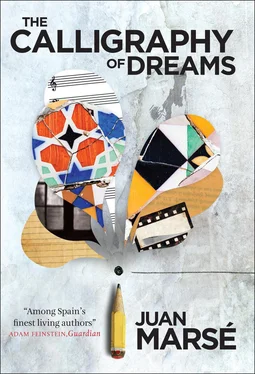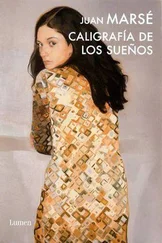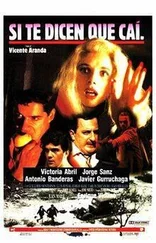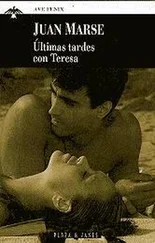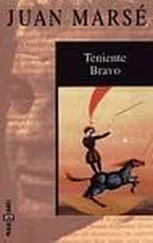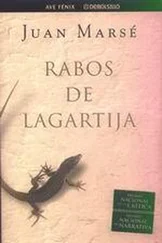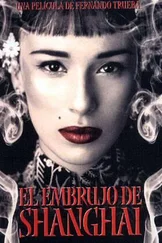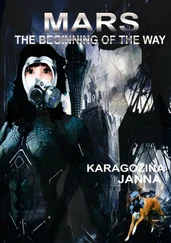All of a sudden the girl in the mirror opens her big, intensely black eyes, fixes them on him with a smile, and sticks out her tongue. Almost simultaneously, Señor Alonso’s dark, bony hand clasps his shoulder.
“I’m sorry, lad, I was kept longer than I expected.” He looks askance at the noisy flamenco revelry. “I can see you haven’t been bored.”
“No chance of that.”
“My God, what a pain. And no-one can stop them.”
“Don’t you like gypsies, Señor Alonso?”
The older man stares at him for a moment, eyes twinkling.
“My dear boy, gypsies have been my lifelong friends. I live surrounded by gypsies and illiterate migrants from the south who are as quick to use their fists as they are to kick a ball, kids like you who dream of becoming someone in life and escaping from their wretched surroundings as quickly as they can.” His voice is not the same as before he left, the words sound thick with saliva and he gives off a strong smell of aniseed and brandy. “But what I can’t stand is the way they get together to celebrate. I know what I’m talking about … Well, as you can see, it’s nothing like the Rosales in here, is it?”
“You’re right there.”
“We can leave whenever you say the word. Or would you like something more?” He looks him up and down, judging his condition. “It’s late, and they’re about to close. I’ll go with you to the tram stop.”
“There’s no need.”
“I think there is. Look, if you miss the last tram you’re going to have to walk home, and it’s a good stretch up to Gràcia. I’m in the same boat, but first I have to go back to my friend’s place.”
“I thought you lived around here … Do you know something? I’d like to live in this district.”
“Don’t say that. Nobody likes to live in shit. Well, tomorrow we have to get up early. Hey, barman!” he clicks his fingers to attract the waiter’s attention. As he does so, a blue ink stain becomes visible between his thumb and first finger. “Give me a packet of Virginia tobacco and tell me what’s owing.”
“Well, I’d like to,” Ringo insists despondently, staring at the hand opening the wallet. That stain wasn’t there when he left, he thinks, and then all at once he starts to feel sick. His head hurts and his hands are sweaty. He finishes the beer and mumbles: “Anyway, thanks for the invitation, Señor Alonso.”
“Are you feeling alright?”
“Fantastic. Fantastic.”
In the mirror, the girl with the flowery blouse rocks the baby, her eyes closed once more. Again, the light around her grows dim, the tavern fades, so do the barrels and the two tables with the carousing gypsies, the bullfight poster and the food hanging from the ceiling, everything around her becomes dark and hidden, and then vanishes completely. As Ringo peels away from the counter, he glances at her one last time.
A short while later he finds himself in Las Ramblas waiting for the Number 30 opposite the terrace outside the Cosmos café. Señor Alonso is still alongside him, offering him constant, incisive support: lost in the shadows, his austere face has somehow taken on a vaguely Faustian outline, with a deceptive gaze and a cardboard nose. The tram stop is deserted, and the café is shut. Ringo excuses himself at the entrance to the public lavatories and rushes down into them on his own, because he knows he is about to be sick. He hardly has time to rest his hands on the scaly lavatory wall of the lavatory before his stomach starts to churn and he brings up the first mouthful of vomit, which splashes his shoes. Afterwards, he rinses his mouth with tap water and cleans the tips of his shoes with toilet paper. Back up in the street he still feels giddy, and is convinced that his flies are open and one of his shoelaces is undone, and yet he doesn’t dare lower his gaze to look because he’s frightened his head might start to spin. It is obvious that the lame ex-footballer will not leave him alone until the tram arrives. And he keeps on talking to him.
“What happened to your hand? I guess it won’t stop you making rings and earrings.”
He shrugs his shoulders and peers down at the sling. He moves his fingers, but can’t feel them. The blood’s gone to sleep, he thinks.
“My mother’s looking for a job for me,” he says, as if dreaming.
“That’s good.” The thick, dark lips broaden in a smile. “You’ll have to learn another trade, but I’m sure you’ll make a go of it.”
“Of course.”
“What would you like to do?”
Ringo shrugs again.
“The other day I saw a sign in a music shop: they wanted an assistant. I’m not sure, I might try that. I could be a piano-tuner …”
Two municipal street cleaners cross the central promenade carrying a hosepipe over their shoulders as if it was — he thinks he must write this down in his black oilskin notebook — a huge dead snake. Bending slightly at the waist as if trying to sell a dummy on the pitch, the ex-footballer lifts his foot from the pavement and comes closer, hand in his jacket pocket.
“Now you go straight home, and tomorrow’s another day, alright?” He appears to hesitate for a second, then says: “Look, seeing that I bumped into you … Could I ask you to do me a favour? Could you leave something from me in the Rosales bar?” He keeps his hand in his pocket as he questions him with his eyes. “You told me you still went there, didn’t you?”
“That’s right.”
“I’ve got something for Señora Paquita. Could you give it her from me? She knows what it’s about. Would you do me that favour?”
Aaagh! His stomach churns again, and he is on the point of throwing up once more.
“A message for Señora Paquita? Of course.”
“Could you give it her tomorrow morning, as discreetly as possible? She’s been expecting it for ages …”
“Well, she’s hardly ever there in the mornings. But her brother Señor Agustín is.”
“No, not to Señor Agustín. It’s something you need to hand personally to his sister. I’d go myself, but I can’t: I have to go on a trip first thing tomorrow.” He takes a pale-pink envelope out of his pocket. It’s sealed and has a name written in the top corner, a name beginning with a capital V, which Ringo cannot completely make out, although he knows full well to whom it’s addressed. “Try to give it to her without anyone seeing you, right? When there aren’t many people in the bar.” He is suddenly anxious, doubtful, and so he adds with a smile, seeking his support: “That way we’ll avoid any gossip, won’t we? I was even thinking … You know the address …” he pauses again, hesitates. “No, there would be too many questions. Better for Señora Paquita to take care of that. As I said, she’ll know what needs to be done. Here it is.”
Aha, so that’s what this was all about, he thinks. So it seems the famous affair is not over yet. Still feeling sick, afraid he might black out, and choking back bittersweet saliva, Ringo takes the envelope in his bandaged hand, because with the other one he is feeling for change in the left pocket of his jacket: a couple of coins have fallen through a hole in the lining, but he can’t reach them and is worried he won’t have the forty cents he needs for the tram. All at once, with the letter in his anesthetised hand, pinned gently in his numb fingers, he feels downhearted and annoyed. In the alternative world that is being created in complete opposition to what is real (except possibly what he can see in the mirror) there can be no place for such sordid, depressing tales of woe like those of the voluptuous blonde and her crippled lover. You try to be friendly and polite, to always be ready to do someone a favour, and look where it gets you, dammit. He can feel how thin the envelope is: it must contain a single folded sheet, most likely an extremely short letter. But together with the envelope, there’s a five peseta note!
Читать дальше
